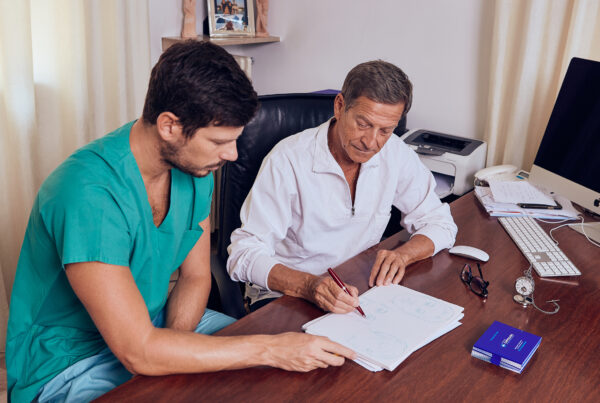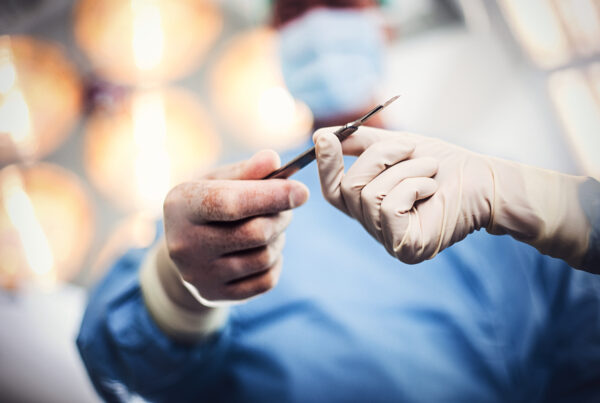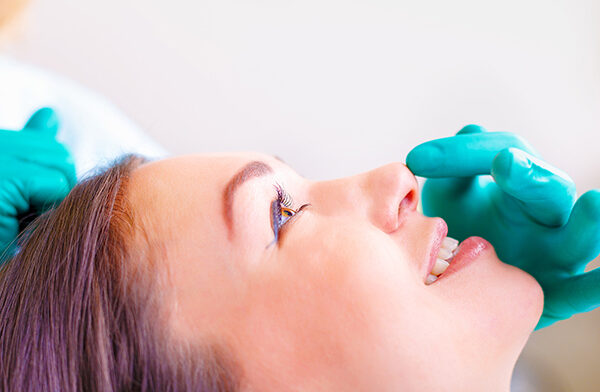FACIAL SURGERY
Rhinoplasty
Rhinoplasty: cost and other questions, Dr Cesare Cappellina answers:
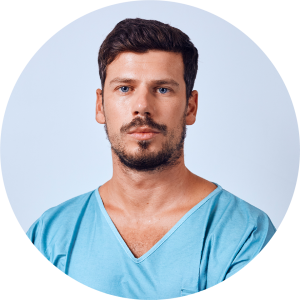
Dr Cesare Cappellina replie to your rhinoplasty doubts.
What is rhinoplasty?
Rhinoplasty is the surgery that allows you to improve the shape of a nose. The patient or patient may be prompted for a rhinoplasty to change the appearance of the nose, improve breathing, or both.
The upper part of the nose structure is the bone and the lower part is the cartilage. Through rhinoplasty we can intervene by modifying the bone, cartilage, skin or all three. In preparing the surgery, the surgeon must evaluate the other features of the face, the skin of the nose and what you want to change.
What can it improve?
Septoplasty is a surgery to improve breathing by straightening the inner wall of the nose that divides the nasal passages into a right and left side (nasal septum). When the septum is crooked, it can make it harder to breathe through the nose. A septoplasty is often combined with a rhinoplasty. A deformity of the nasal pyramid can result from birth, in the congenital form, or result from trauma. Nose defects can only be definitively corrected through rhinoplasty
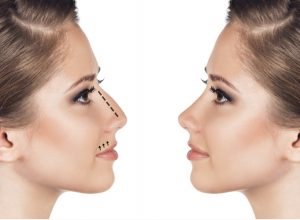
Rhinoplasty is the only way to correct definitly nose defects
Why is the consultation so important?
The moment of the first consultation is essential, because at this time we will understand together with the patient the reasons that push him to the intervention, the margins for improvement that can be obtained on a case by case basis.
It is normal to feel a little awkward in discussing your appearance, but it is very important that you are open with your surgeon about your wishes and goals for the surgery.
What do we need to know?
Before any intervention it is important to understand the patient’s clinical history, any allergies, reasons; only later will the preparatory tests be carried out, which consist of a blood test including coagulation tests and possibly a CT exam, for the study of the osteocartilaginous nasal septum, if we suspect a deviation of the septum itself.
Another important moment of the visit at our office is that of the photographs, taken in different projections, which allow us to study each case and arrive prepared for the surgery, and are valid as a useful pre-post comparison, both for the patient and for the surgeon.
FACIAL SURGERY
Are you interested in facial surgery?
Are there any particular indications to follow before a rhinoplasty?
Before surgery, the patient must avoid taking anti-inflammatory drugs, the so-called NSAIDs, derivatives of aspirin. This is because of the increased risk of bleeding, which can be bothersome.
Smoking also negatively affects the healing process.

Anti-inflammatory drugs are to be avoided for at least 10 days before surgery
Are there any risks?
As with any major surgery, rhinoplasty carries risks such as:
- Bleeding
- Infection
- Adverse reaction to anesthesia
Other possible specific risks of rhinoplasty include but are not limited to:
- Difficulty breathing through the nose
- Permanent numbness in and around the nose
- The possibility of an uneven-looking nose
- Pain, discoloration or swelling which may persist
- Scars
- A hole in the septum (septal perforation)
- Need for further surgery
What is the postoperative?
After surgery it is necessary to rest in bed with the head raised higher than the chest, to reduce bleeding and swelling. The nose may be congested due to swelling or splints placed inside the nose during surgery.
Some temporary swelling or black and blue discoloration of the eyelids may occur for two to three weeks after nasal surgery. Swelling of the nose takes longer to resolve. Limiting sodium in the diet will help the swelling go away faster. Don’t put anything like ice or cold packs on your nose after surgery.
The nose changes over the course of your life, regardless of whether the patient has surgery or not. Therefore, it is difficult to say when you got your “final result”. However, most of the swelling goes away within a year.
What kind of anesthesia is used?
Rhinoplasty can be performed under local anesthesia with sedation, although we prefer general anesthesia. Before the surgery it is necessary to perform a visit with the anesthetist, who will scrupulously investigate any allergies and preferences of the patient regarding the type of anesthesia. Rhinoplasty can be performed inside the nose (the so-called closed rhinoplasty) or through a small external cut (incision) at the base of the nose, between the nostrils (the so-called open rhinoplasty).
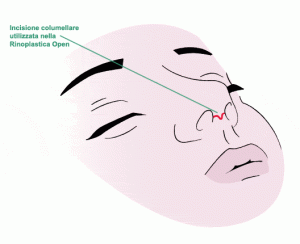
The open technique is the one we prefer for secondary rhinoplasty; provides a small incision below the tip in the columellar region.
Before and After
FACIAL SURGERY
pre post
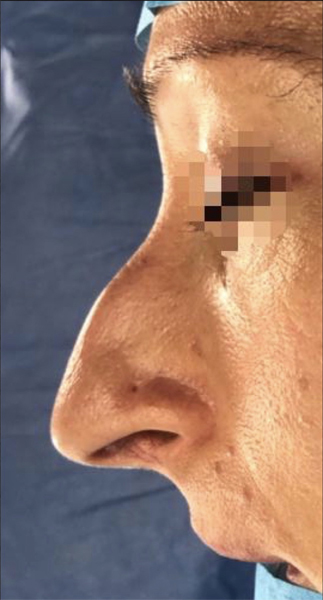
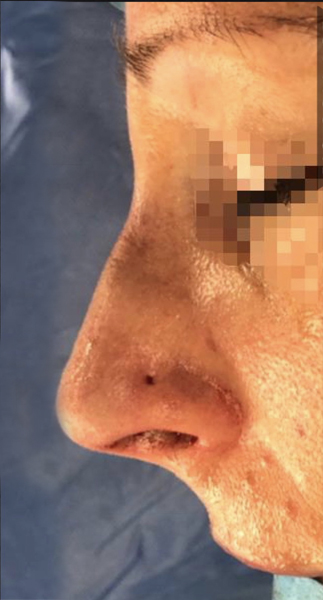
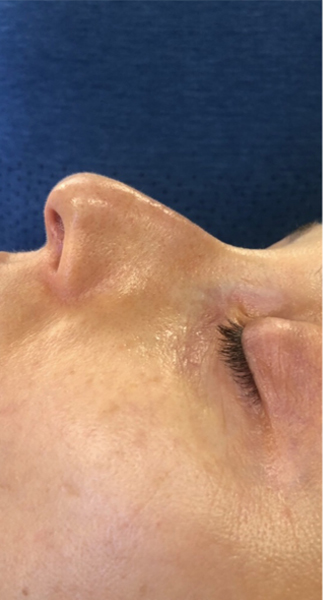
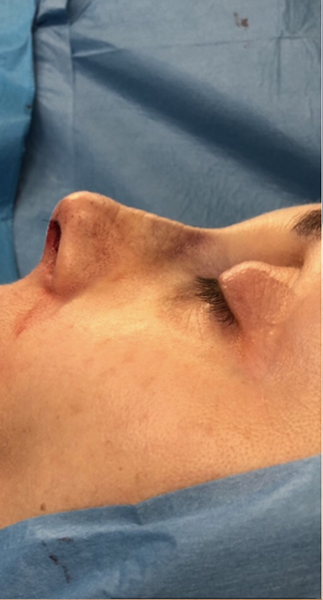
Are the results predictable?
Small changes in the structure of the nose, often measured in millimeters, can make a big difference in the appearance of the nose. More often than not, an experienced surgeon can get results that both of you are happy with. But in some cases, small changes are not enough, it may be necessary to perform a second surgery for further changes.
How long is the hospitalization?
Almost anyone with rhinoplasty can leave the clinic safely the same day, or to be better monitored they can stay overnight. We will then follow up the patient twice a week at our office. The chalk will be removed after 7 days.
How long is the recovery period?
After the surgery, there will be some swelling. The swelling can take many months to resolve, although most people stop noticing it after a couple of months. People usually return to most activities after a week and resume all activities after two to four weeks.
How much does rhinoplasty cost?
The cost of a rhinoplasty depends on several factors, including the complexity of the surgery, the surgeon’s training and experience. Usually the cost varies from 5,000 to 7,000 euros.
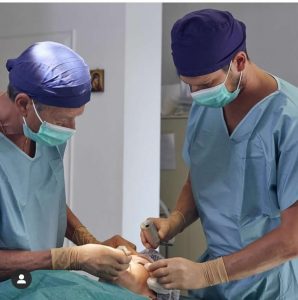
Dr Diego and Cesare Cappellina are both plastic surgeons. They operate in Vicenza.
